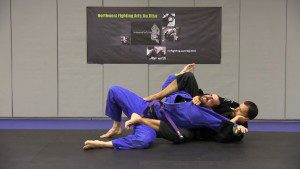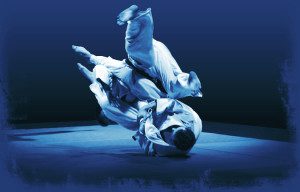 It’s Not About How Hard You Can Roll in Jiu Jitsu…
It’s Not About How Hard You Can Roll in Jiu Jitsu…
One of the things that separates Brazilian Jiu-Jitsu from other martial arts is the ability of practitioners to use 100% effort during sparring. This also happens to be one of the reasons the art is so effective. It allows students to test their skills against fully resisting opponents while inflicting and receiving minimal damage. Hard sparring, particularly if you are an active competitor, is a necessary component of a well-rounded training routine. However, going all out all the time isn’t necessary to make steady progress in the art of Brazilian Jiu-Jitsu. In fact, doing so can actually impede your progress.
One of the unfortunate side effects of hard sparring is an increased risk of injury. Over the years, I’ve observed a direct correlation between sparring intensity and injuries. Remember, time spent injured is time spent off the mats. If you love training and hate taking time off, this alone should convince you to limit your number of intense rolling sessions. Two to three hard sessions per week combined with moderate passed rolls is perfect.
However, some students, despite their awareness of the downfalls of frequent hard sparring, still have difficulty dialing down the intensity of their rolls. I’ve found that this ordinarily comes down to a fear of “losing.” A fear of “losing” in training is probably the biggest impediment to progress in Brazilian Jiu-Jitsu. It can cause even the most mindful students to unconsciously increase the intensity of their sparring sessions. For students who find this to be an issue, here are a few tips for remedying this problem:
Some strategies 
• Plan to get tapped out in your next rolling session. By suggesting that you plan to get tapped, I’m not implying that you should just give up your arm or neck to your partner with no resistance. What I am saying, though, is that you should enter each roll mentally prepared to be submitted. This mentality will allow you to relax and not feel the need to fight for your life with every move your partner makes. When consistently put into practice, you’ll find that this attitude will allow you to open up your game and make improvements in areas that you were previously reluctant to experiment with for fear of getting tapped.
• Accept inferior positions. Again, accepting inferior positions does not imply becoming a human grappling dummy and simply allowing your partner to dominate you. What it does mean? Once your partner has basically achieved his or her objective, accept it and move on. When your partner has nearly attained a dominant position, there is ordinarily a window in which you are able to delay the inevitable through struggle and the use of strength. Continuing to fight when your partner has essentially achieved their desired position, be it side control, full mount, etc., is a waste of energy. This can quickly transform a good natured roll into what feels like a life or death struggle.
One of the beautiful things about Brazilian Jiu-Jitsu is that there are multiple options. Techniques can be practiced and applied from both dominant and inferior positions. Treat inferior positions as opportunities to improve your escapes, counters, and overall defense. If you adopt this attitude, you will not only improve your game, but you will lower the intensity and increase the enjoyment of your rolls.
Be smart with how you play the game
Another thing to keep in mind when sparring is this: the majority of Brazilian Jiu-Jitsu students are not serious competitors. In fact, many of those who practice this art don’t compete at all. Most people sign up to learn self-defense, get in shape, and have some fun. In other words, most training partners don’t enjoy fighting for their lives every roll. If you go 100% every roll, your partners may begin to avoid and even resent you. Always keep the goals and interests of your non-competitive training partners in mind. This can go a long way in helping you lower the intensity of your rolls.
Remember, while hard sparring definitely has its place in a well-rounded Brazilian Jiu-Jitsu training program. Dialing down the intensity of your sparring sessions can go a long way towards your success. Prolonging what is hopefully an enjoyable and fulfilling journey in the art of Brazilian Jiu-Jitsu.



